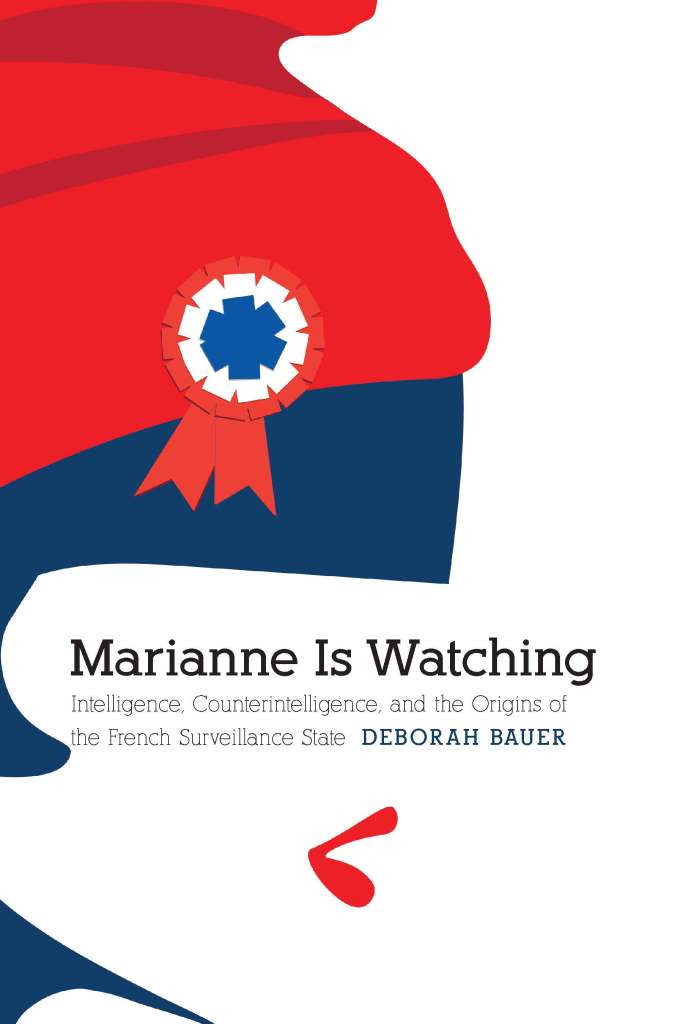Deborah Bauer is an associate professor of history at Purdue University Fort Wayne. Her book, Marianne Is Watching (Nebraska, 2021), is new this month.
Introduction
Baroness Lucie von Kaulla was an ambitious young woman from Austrian high society who married, and later divorced, a French army officer named Theodore Jung. With beauty and charm, she moved through Paris’s fashionable circles, mingling with Russian aristocrats, and eventually became the lover of former French war minister General Ernest de Cissey. Her connection to de Cissey thrust her into the public eye in 1880, as allegations of stolen military secrets passed along to German Chancellor Bismarck rocked the French public. Accusations lobbed against the former war minister rested on the foolishness of his following his libido and thereby “delivering France to Prussia,” while the press directed the majority of its vitriol against the loose and devious Jewish Austrian woman who had seduced de Cissey to profit France’s enemies. In spite of the publicity and harsh rhetoric aimed at her, Kaulla herself was never prosecuted, and, in fact, the police officers who had been watching her for years conceded that they never discovered any proof of her practicing espionage. Moreover, high-ranking intelligence officials within the French army denied that any documents had even gone missing. These facts, however, did not stop sensation-seeking newspapers, fictional detective stories, or even twenty-first-century historical accounts from reciting the tale of Kaulla’s transgressions. The reason the case garnered so much attention was its subject: the scourge of German espionage, unleashed by a power-hungry Kaiser in the guise of an alluring, independent, foreign woman.
The practice of intelligence and counterintelligence had only recently become an official and permanent feature of the French state, yet the presence of new institutions irrevocably altered society during the anxiety-ridden fin de siècle. Accounts of espionage, in particular, regularly made headlines in France at the turn of the twentieth century, with the veracity of charges seemingly a secondary concern. The importance, for avid readers, was that authorities worked to see French secrets guarded at the same time as they strove to uncover the secrets of foreign nations. The Baroness von Kaulla was just one individual among many who aroused the suspicion of a paranoid public, recently alerted to the dangers of foreign espionage and eager to assist professionals in protecting France by identifying the sorts of people viewed as most likely to inflict harm. The establishment of professional intelligence organizations in France at the end of the nineteenth century played a vital role in the emergence of a fear-driven surveillance state. Thanks to the creation of a body of “experts” able to locate and interpret secret or hidden information, France’s new intelligence agencies helped shape ideas of a society under threat and in need of protection, thus securing a place for intelligence practices serving both offensive and defensive purposes as France struggled to assert its place in the world.
Whereas the histories of espionage, intelligence, and reconnaissance date back millennia, the first official intelligence agency in France came into existence with the army’s reorganization in the wake of defeat in the Franco-Prussian War (1870–71). In the years that followed, French operatives practiced in several countries in a variety of contexts. One French agent faked illiteracy to gain access to the quarters of the German military attaché in Paris; another fooled one of Bismarck’s top spies into spilling trade secrets; French officers paid informers to discover Italian schemes in North Africa; and yet another agent, convicted of espionage, used technical cunning to escape from a German prison. Meanwhile, French counterintelligence teams apprehended and convicted individuals undeniably spying against France.
Operating domestically, in Europe, and around the globe, information gathering developed into a vital tool for an increasingly apprehensive state, fearful of both internal and external enemies. Given that this period coincided with the permanent instantiation of republican rule itself, questions arise about how professional institutions devoted to secrecy emerge within a democracy, as well as what the course of their development means to a state and society. The answers reveal a story about the growth of institutions, and one in particular—professional intelligence—that was able to develop and expand because of the way it portrayed its critical role as protector of the nation and its people. Professional intelligence agencies aimed to defend, yet they inadvertently contributed to an atmosphere that ostensibly required additional defense. Ultimately, the creation of such agencies during this period caused more harm to the nation than it prevented, by encouraging and perpetuating fear and allowing the exclusion of those individuals and groups characterized as potential spies.

